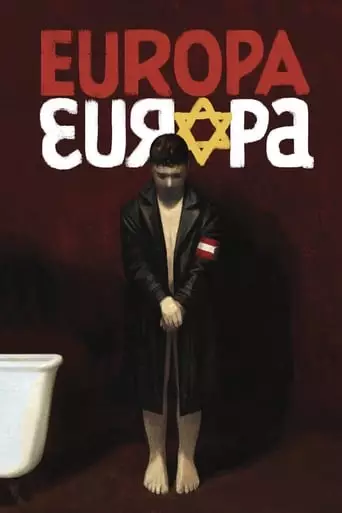
Europa Europa (1990) Watch Online Free
A Jewish boy separated from his family in the early days of WWII poses as a German orphan and is taken into the heart of the Nazi world as a ‘war hero’ and eventually becomes a Hitler Youth.
Europa Europa (1990), directed by Agnieszka Holland, is a compelling war drama based on the true story of Solomon Perel, a Jewish teenager who survived the Holocaust by assuming a false identity. The film chronicles his harrowing journey through Nazi-occupied Europe, highlighting the extreme measures he took to evade detection and the profound impact of his experiences on his identity.
In 1938, Solomon Solek Perel, a 13-year-old Jewish boy, witnesses the horrors of Kristallnacht in Germany. After his sister is murdered, his family relocates to Łódź, Poland. With the outbreak of World War II and the German invasion of Poland, Solek and his brother flee eastward. Separated from his brother, Solek ends up in a Soviet orphanage, where he is indoctrinated into communist ideology and learns Russian. His life takes a dramatic turn when he is captured by German soldiers, who mistake him for a Volksdeutscher (ethnic German). Assuming the identity of Josef Peters, Solek becomes an interpreter for the German army, navigating the complexities of his false identity while grappling with the moral dilemmas it entails.
The film delves into Solek’s internal conflict as he balances his survival instincts with the ethical challenges of impersonating a Nazi sympathizer. His journey through various facets of Nazi society, including the Hitler Youth Academy, exposes the brutal realities of the regime and the dehumanizing effects of war. The narrative is a poignant exploration of identity, survival, and the human capacity for resilience amidst unimaginable adversity.
Europa Europa received widespread critical acclaim upon its release, praised for its compelling storytelling and powerful performances. The film holds a 95% approval rating on Rotten Tomatoes, reflecting its positive reception among critics and audiences alike.
It was also nominated for the Academy Award for Best Adapted Screenplay, underscoring its excellence in narrative adaptation. The film’s unflinching portrayal of the Holocaust and its exploration of complex moral themes have solidified its status as a significant work in Holocaust cinema.
Watching Europa Europa is an emotionally intense experience that leaves a profound impact on viewers. The film’s unflinching portrayal of the Holocaust and its exploration of complex moral dilemmas evoke a deep sense of empathy and reflection. The harrowing journey of the protagonist, Solek, through various facets of Nazi society, challenges viewers to confront uncomfortable truths about human nature and the capacity for both cruelty and resilience.
The film’s realistic depiction of historical events, combined with its compelling character development, immerses viewers in the narrative, making it difficult to look away from the painful realities of war and survival. By the end of the film, you will likely feel a mix of sorrow, admiration, and reflection. The emotional weight of Solek’s journey—his internal struggle between survival and moral integrity—will linger long after the credits roll.
As you process the story, you may also feel a deep sense of awe for the resilience of the human spirit. Solek’s ability to adapt and survive in the face of overwhelming adversity is both heartbreaking and inspiring. The film invites viewers to reflect on the moral complexities of survival in times of war and the choices individuals must make to stay alive.
Ultimately, Europa Europa is a film that challenges you to confront the darkest aspects of history while also celebrating the strength and perseverance of those who endured it. You will likely feel a renewed sense of empathy for the victims of the Holocaust and a deeper understanding of the moral dilemmas faced by individuals during wartime. The film’s impact is profound, leaving you with a lasting emotional and intellectual impression that prompts reflection on the human condition and the complexities of identity and survival.
